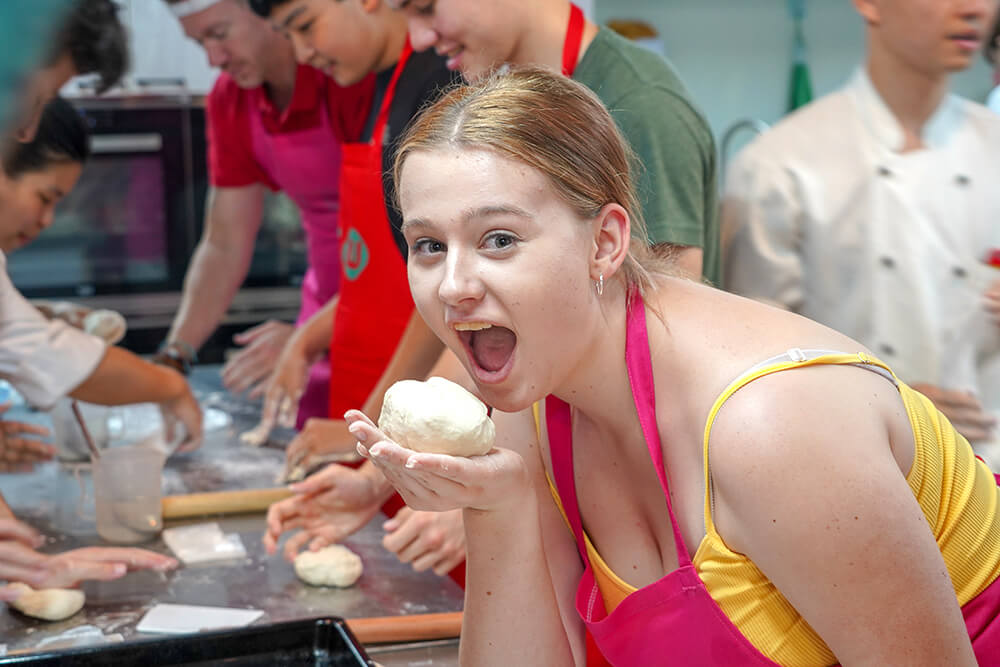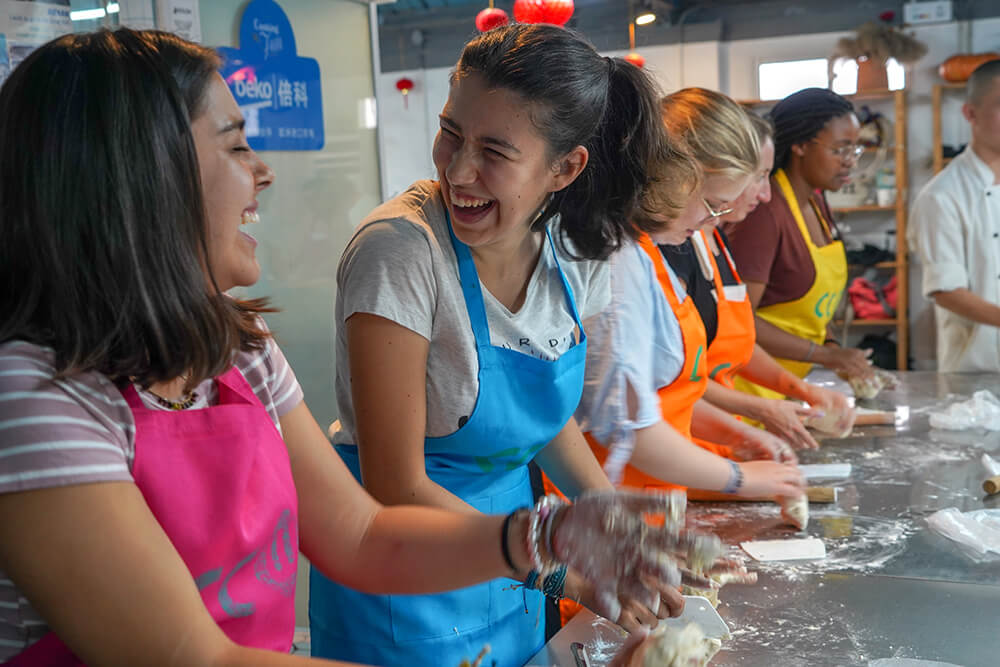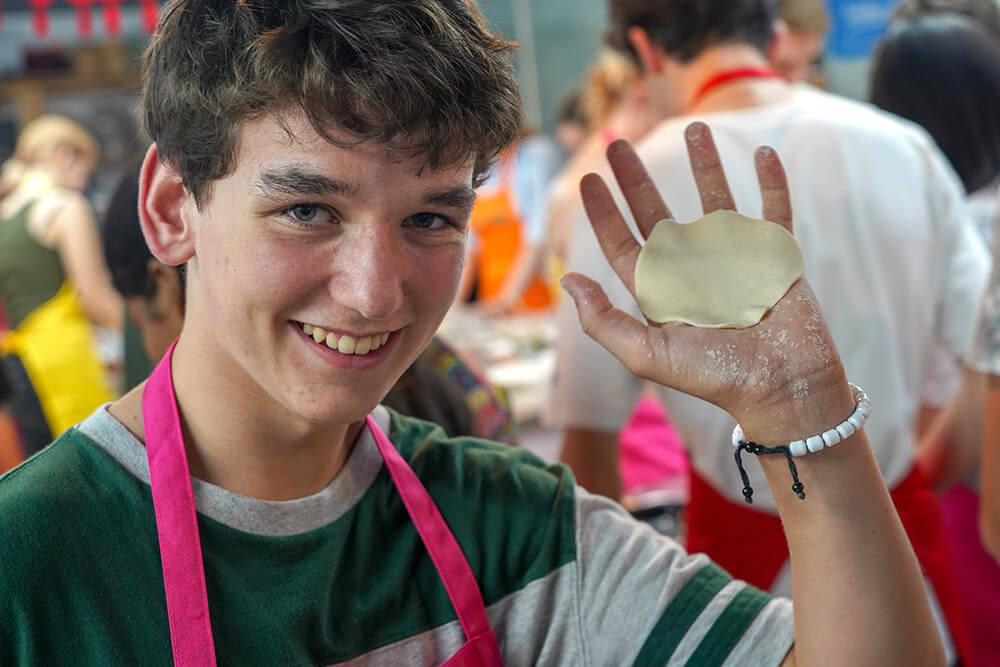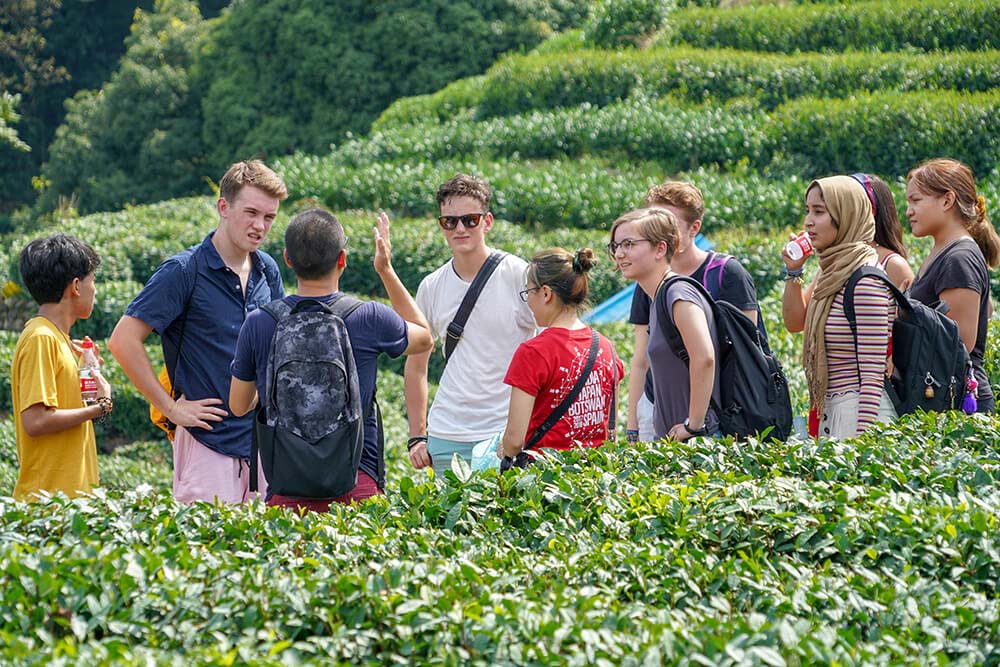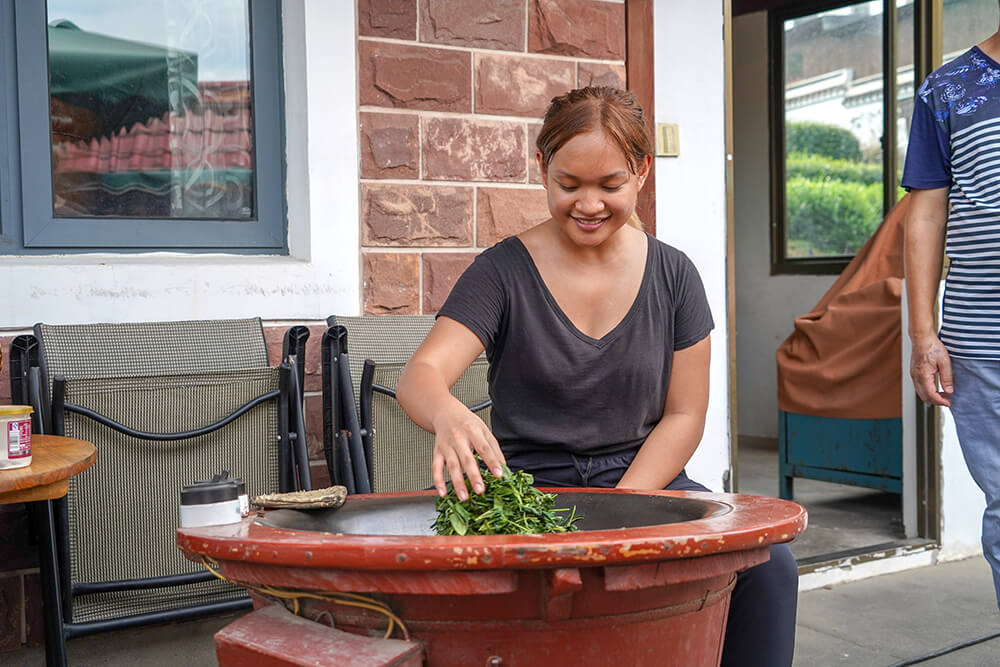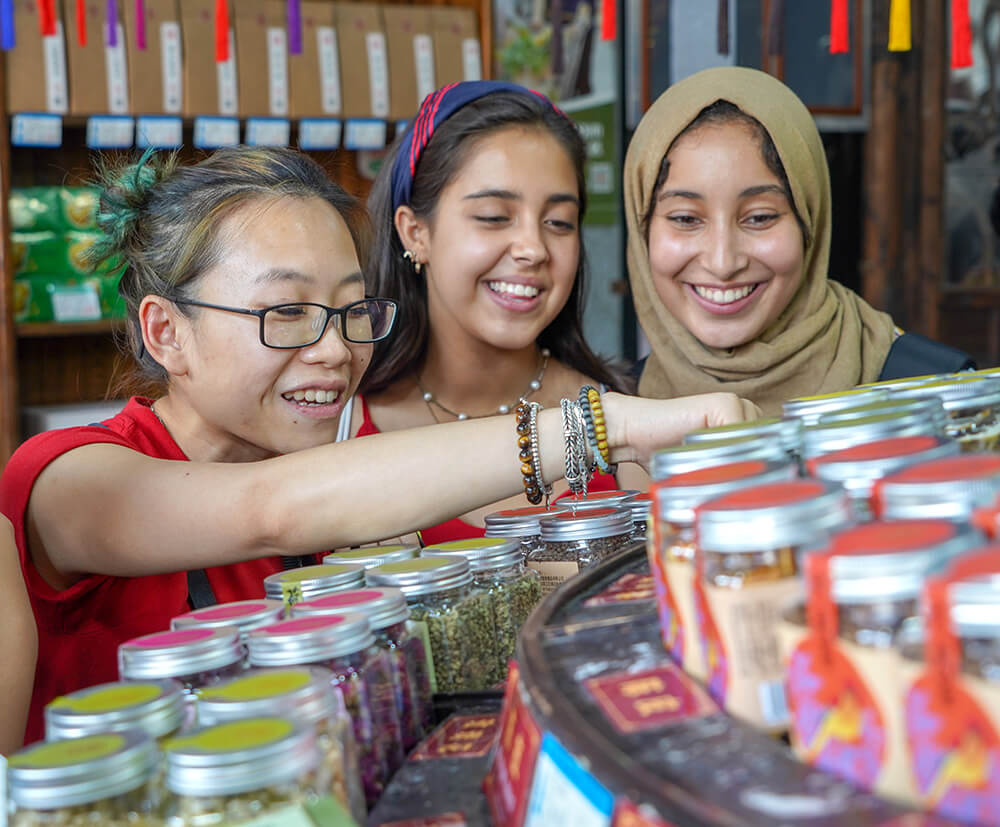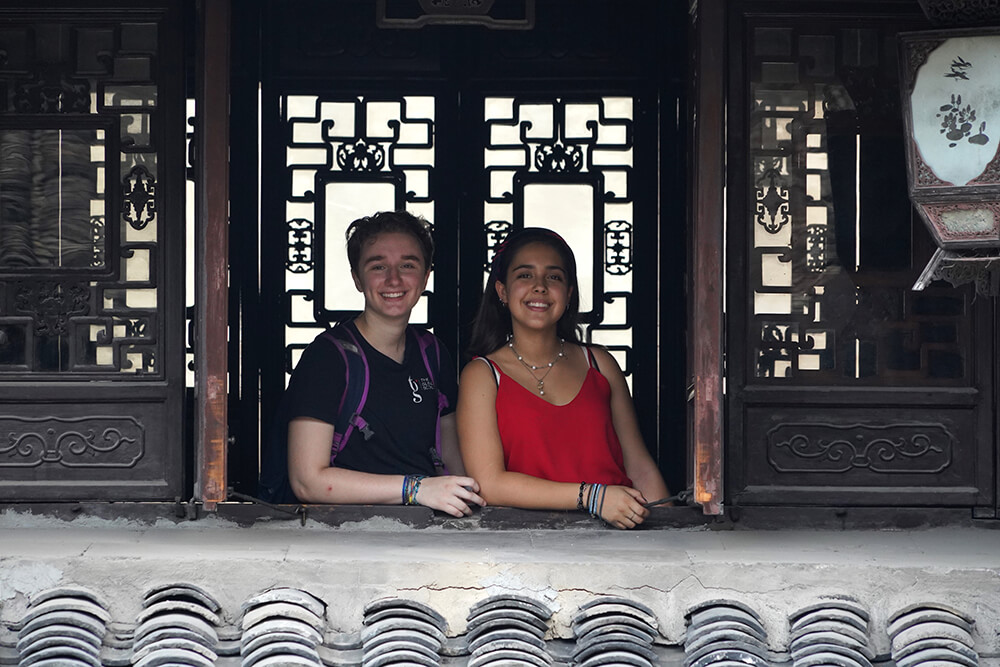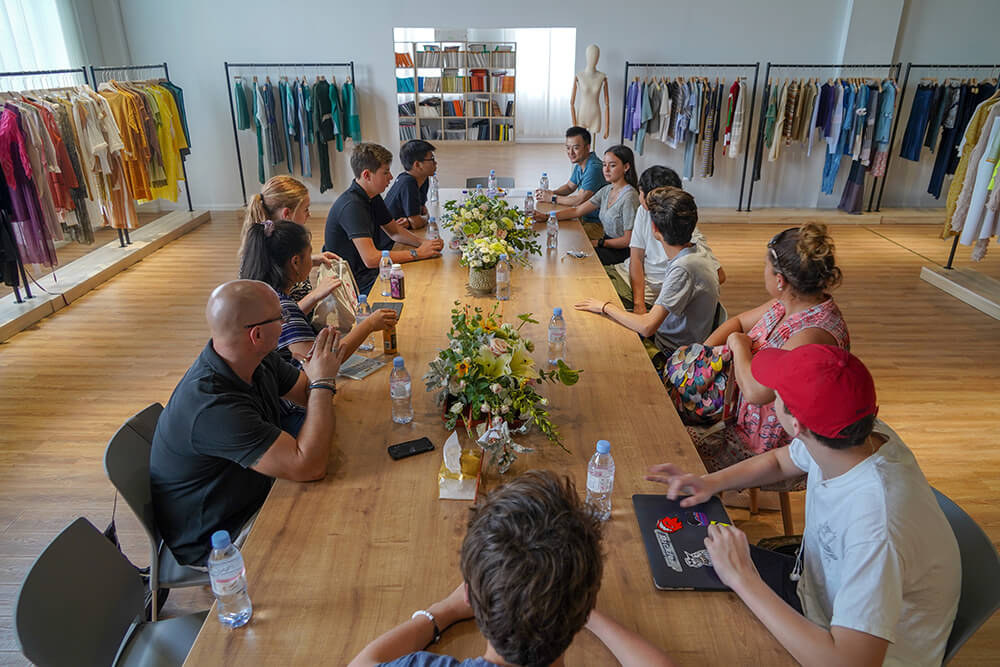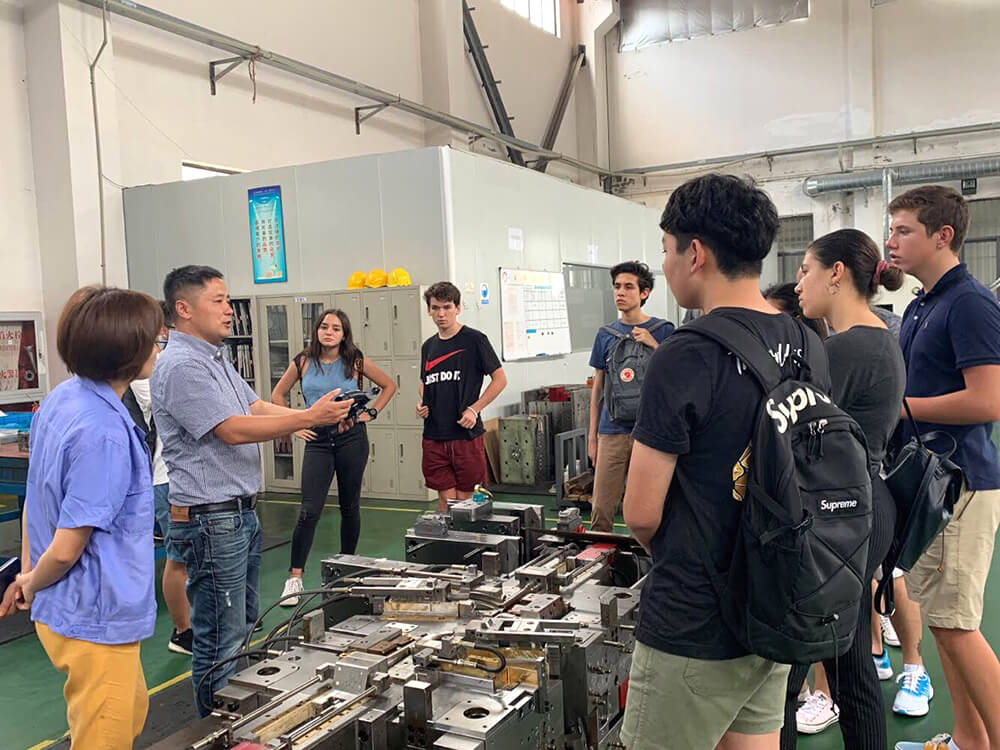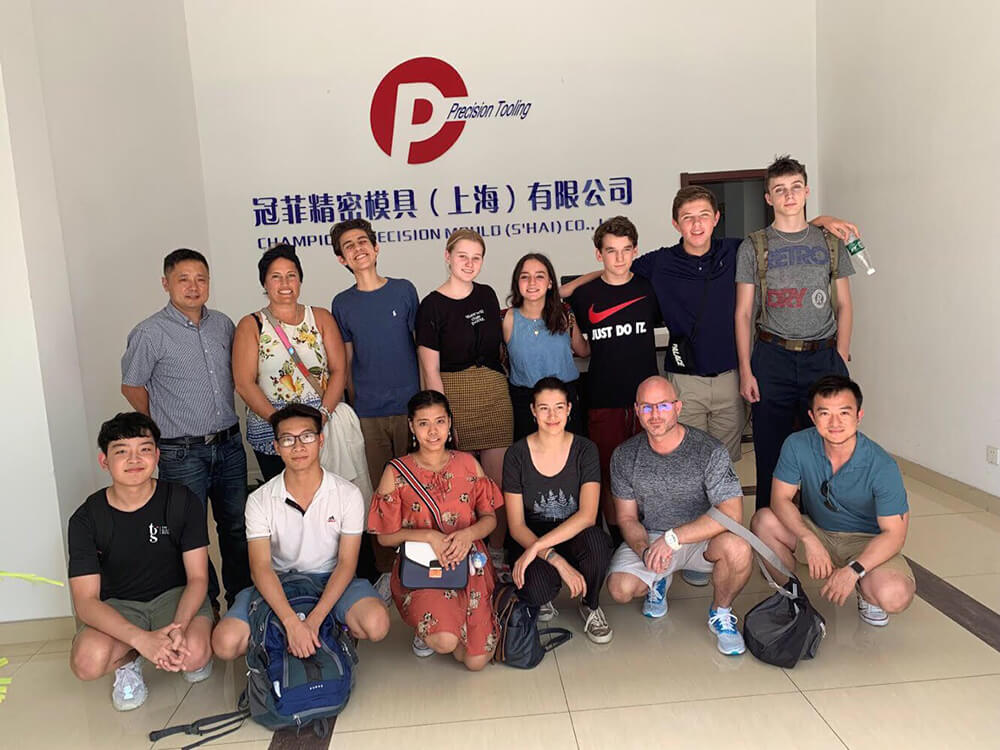1) Hi Nada, can you tell us what you've been up to since graduating from THINK Global School in 2022? Since graduating in 2022, I've been pursuing a passion I found while at TGS, sustainability, and I am currently majoring in engineering in renewable energy systems at Al Akhawayn University, in Ifrane, Morocco. But there is way more than that! I've had a chance also to explore the world of...
Read MoreAfter wrapping up their 2018-19 school year in Greece and spending some well-deserved time at home with their family and friends, our CM2 students headed off to China for the first term of their 2019-20 school year. This marked our CM2 students’ third time living and learning in Asia, following terms the previous year in India and Japan. During those terms, our CM2 students had the opportunity to work on modules connected to sustainability, virtual reality, bringing e-commerce to rural areas, and much more.
Similar to Japan, China boasts ultramodern cities, like our host city of Shanghai, but antiquity still manages to lurk seemingly behind every corner. And similar to their time in Mumbai, CM2 students found themselves in a massive host city filled with a diversity of people to interact with; an impressive range of architecture to admire; and endless marketplaces, museums, and landmarks to explore. However, China also presented an entirely new world for our students to explore, complete with ancient traditions and relevant topics that don’t exist anywhere else.
Students spent much of their first week in Shanghai focused on building upon the core competencies of their module and settling into their new surroundings. One fun team-building activity they participated in during orientation was a dumpling-making class, where they learned how to make four different types of dumplings from scratch. Before long, students were creating piles and piles of dumplings in the shape of fish, flowers, purses, and crescents. A big xie xie to our hosts and partners at The Hutong Education Programs for putting together such a fun and stomach-satisfying experience.
Immersing ourselves in our host countries through cultural excursions and service learning is an integral part of a THINK Global School education, and students are regularly exposed to such activities during the course of each term. In China, these experiences included guided tours, module sessions, and student-led trips among others.
Modules
Once they were acquainted with their new home for the next eight weeks and finally getting over the effects of jet lag, our students began to concentrate on their module work for the term. At THINK Global School, students gain an education through project-based learning, working in teams to answer driving questions to geographically relevant teacher-led modules and self-designed personal projects. All projects at THINK Global School allow our students to explore their passions while mastering the 21st century skills that are crucial in today’s workforce.
Each term students choose one teacher-led module to focus on, subsequently putting all of their energy into further understanding the module’s driving question through research, tours, speakers and hands-on experiences. Each module includes a weXplore: a week-long, field-based excursion to dive deeper into the key points of the module.
Below you can find information on each of the three teacher-led modules undertaken by our students during their China term, followed by evidence of their work which was presented at the end-of-term student showcase in Shanghai.
A Journey Home
The World Bank estimates that in 2030, 70% of China’s population will live in urban centers—totaling roughly one billion people. But only decades ago, the citizens of the People’s Republic of China (PRC) mostly lived in rural and mainly agricultural communities. As they search for employment and the promise of a livelihood, these migrants now find themselves separated by hundreds or thousands of miles from their families.
With this knowledge in mind, participants in the A Journey Home module were tasked with answering the driving question: “How can we make the untold personal stories behind mass migration matter?”
To answer this key question and realize the cultural cost of such a rural exodus, students dove deep into the history of China to understand how Chinese history has influenced migration. To begin with, students focused on learning more about the various groups that had migrated into Shanghai during the twentieth century through tours and research sessions.
Summative Assessment and Learning Targets
For their summative assessment, students were tasked with creating a story of the personal journey of a Chinese migrant using the medium of their choice. The story was required to be historically accurate, rooted in qualitative and quantitative data, use mathematical models, and based on census data of over twenty years to better
understand the movements of the people’s groups. Through the project, students built up their understanding of the following learning targets and 21st century skills:
- Statistics and Probability
- Functions and Algebra
- Human Geography
- History, Institutions, and Traditions in Society
- Information Literacy
- Effective Communication
As part of the module each student interviewed individuals who had left Shanghai or migrated to Shanghai. Joseph Stalin’s quote, “A single death is a tragedy, a million deaths is a statistic.” drove module participants to focus on making migration matter by sharing personal experiences with individuals they met during the term, and the impact that migration had on the migrant personally. Students interviewed several migrants in Shanghai and had them share their personal experiences.
The A Journey Home module included a variety of guest speakers, including many migrants, and chances for module participants to venture out into the field and learn, including an intensive weXplore. For the A Journey Home weXplore, students traveled to the cities of Xiamen, Fuyulou, and ChuXi to explore the Qin and Ming Dynasties and understand how agrarianism, trade, and migration has shaped China both in the past and today.
Activities during the weXplore included:
- Gulang Yu Treasure Hunt: Early 19th century, fall of the Qing dynasty (when Manchus conquered Beijing)
- A visit to “ghost city” infrastructure, where massive vacant buildings await residents
- Chuxi village hike
- A tea plantation tour in Xiamen to understand the tea trade during the Qing and Ming dynasties
- An exploration of old Xiamen
- A visit to the Overseas Chinese Museum
During the course of this weXplore, students were able to visit rural villages and compare them to Shanghai to further understand the migration from ruralization to the city.
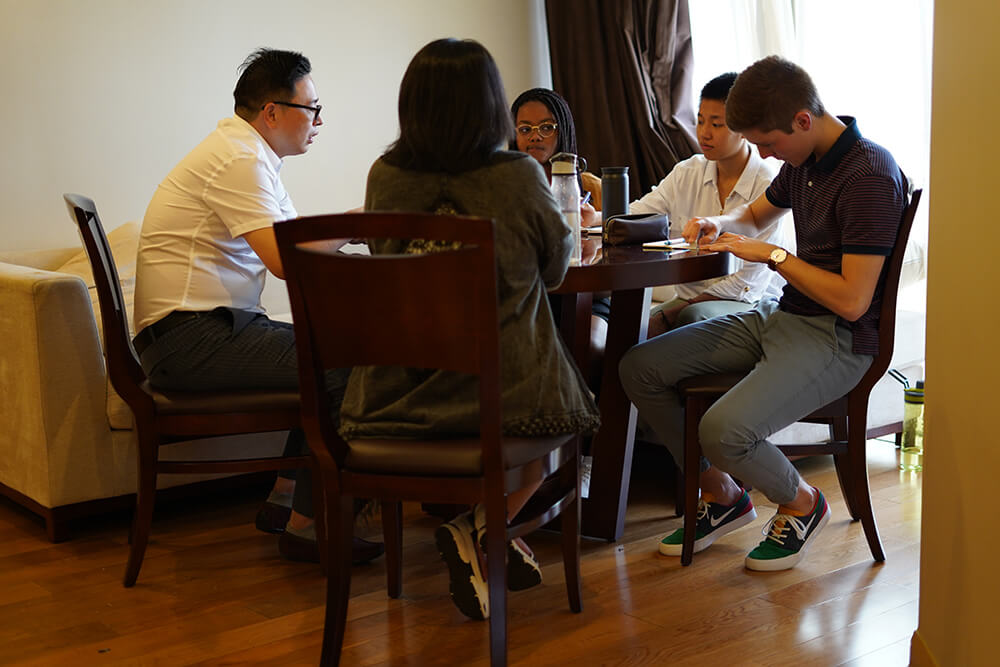
Interview with Shanghai migrates
Selected Outcomes
At the end of the module, as mentioned, each student chose a form of media to tell their story and portray the migrants in the best light possible. Some students chose to incorporate personal projects they had been working on related to culture, the environment, and social and economic issues into their summative assessments. For example, CM2 student Eng created a presentation on land degradation and how it affects everyone through food, climate change, environmental hazards, and the loss of biodiversity.
Eng’s project on land degradation
Monica focused on the fast fashion industry specifically in China and created a short video of how clothing production in this industry affects the environment.
Traditional Chinese Medicine
For thousands of years, the Chinese have used traditional Chinese medicine to take care of their people. By combining diet, exercise, philosophy, and healing techniques, the Chinese have found a way of living that interacts with the natural world. In recent times, with the rise of holistic health in the Western world and elsewhere, traditional Chinese medicine has seen a resurgence. The science of traditional Chinese medicine is however hard to quantify, so participants in this module were asked to answer the following driving question: “How might we improve our health using Chinese concepts?”
During this module, students got hands-on experience with a variety of traditional Chinese medicine methods and techniques. They began by studying Tao philosophies and how the Chinese utilize them in their daily life, including practicing the centuries-old system of physical and breathing exercises known as qigong. After learning about Tao philosophies, students next moved on to study how traditional Chinese medicine also plays a large role in the worlds of Confucianism and Chan Buddhism.
The module included a multitude of field experiences and chances for participating students to further learn about everything from the diagnosis of individuals through traditional Chinese medicine to demonstrations on how herbal treatments are applied.
For their weXplore, students embarked on a five-day journey to the sprawling city of Guangzhou, where they dug deeper into the three major Chinese religions that drive beliefs and philosophy: Taoism, Buddhism, and Confucianism. During the weXplore students explored how these major religions play an integral part in Chinese medicine, culture, rituals, and traditions. The weXplore provided an opportunity to:
- Explore Confucian, Buddhist and Taoism temples
- Live alongside Shaolin monks
- Learn the daily practice of Shaolin Kung Fu
- Explore the Gulong Xiayuan Ecology Tourist Zone
Summative Assessment and Learning Targets
During this module, students concentrated on increasing their knowledge in the following learning targets and 21st-century skills:
- Research Methods
- Scientific Concepts
- Philosophy
- Teaming and Collaboration
- Adaptability/Managing Complexity
- Critical Thinking
Those students who showed clear progress in their skill mastery of any of the above learning targets had the opportunity to increase their rank from Novice to Specialist. Learning targets at THINK Global School help us ensure a balanced education for our students, and you can learn more about them here.
For their final project, students applied what they learned about traditional Chinese medicine during their module to create an artificial intelligence chatbot software application called Naibot (Nai meaning grandma in Chinese). Naibot lets users input their symptoms and then receive tailored answers for a cure based on traditional Chinese medicine methods. The software uses artificial intelligence to auto-generate tailored answers. Below you can see an example of Naibot in action during our Shanghai Student Showcase.
Made in China
Unlike our other two China modules, which were largely rooted in the past, the term’s third module, Made in China, had its sights focused squarely on the future. In this module, students used their time in the world’s second-largest economy to explore the notion of mass entrepreneurship and innovation, in which Premier of the State Council Li Keqiang has made the leading agenda of China’s national economic strategy.
During this module, students examined the so-called “culture of entrepreneurship” in China through the philosophical lenses of economic growth, social enterprise, and sustainable development. They were tasked with answering the driving question “How do different entrepreneurial frameworks vary in their holistic impacts and successes, and which sectors of society are impacted by my specific entrepreneurial framework and what are some of these impacts?”
As they sought to answer the module’s driving question, participating students considered products and technology made in China and how throughout history China’s economy and the world’s trade has been tied to its capacity to produce and innovate. They visited a variety of different companies to learn how their products were made and their influence on the Chinese market. These visits included:
- The Hangzhou Silk Museum to better understand the silk market and trade
- Songjiang Factory to learn about innovations in electronics
- Shanghai FabLab to learn about the future of green technology in China and its influence as a world leader in Green innovation.
- Premier Li Keqiang Fashion Company to meet with several entrepreneurs and ask about their challenges with navigating new business horizons.
weXplore
For their weXplore, students traveled from Shanghai to Beijing for a series of cultural experiences, including trekking the Great Wall of China, exploring the Forbidden City, and venturing into the ancient hutong abodes of Beijing’s Beixinqiao neighborhood. This experience provided them with a deeper understanding of natural resources, rural living context and environmental politics to connect to their personal business pitches related to these topics. Students also visited Tianjin.
Learning Targets and Summative Assessment
During this module, students concentrated on increasing their knowledge in the following learning targets and 21st-century skills:
- Processing and Comprehending
- Scientific Concepts
- People and Cultures
- Human Systems and Stewardship
For their final project, Made in China participants investigated several contrasting frameworks for startups and enterprises based upon different philosophical priorities: sustainable development, social enterprise, and pure economic growth.
They then had two approaches for their final projects: first, they could use these frameworks and their cumulative learning through module experiences to design and craft a serious role-playing game in teams of one to three. The game could be physical or digital, and the target audience would be students of economics and/or entrepreneurship. Or, if they preferred, they could pitch their best new business idea to local entrepreneurs.
Module participants Monica and Xavier chose to do the latter and pitched a nonprofit business for tidal energy. Cam and Levith also decided to develop a business pitch and plan by developing a start-up focused on urban mental health and environmental psychology in cities. Students Eng and Che decided to take the role-playing approach by creating a game called “Mad Scientist Tycoon,” which focused on being fun and entertaining while mixing in entrepreneurial elements. You can learn more about these projects in the videos below, filmed during the China project-based learning showcase.
Watch the showcase in its entirety
If you enjoyed learning about the modules our students completed during their time in China, we encourage you to watch their project-based learning showcase in its entirety. The event also includes a look at personal projects developed during our time in China.

